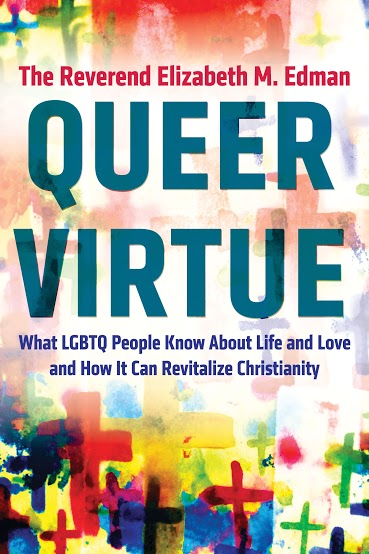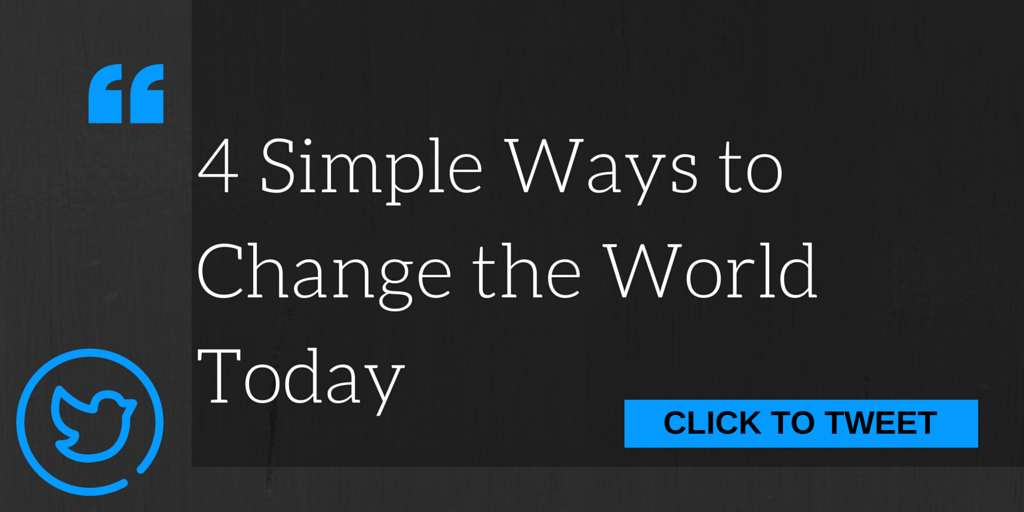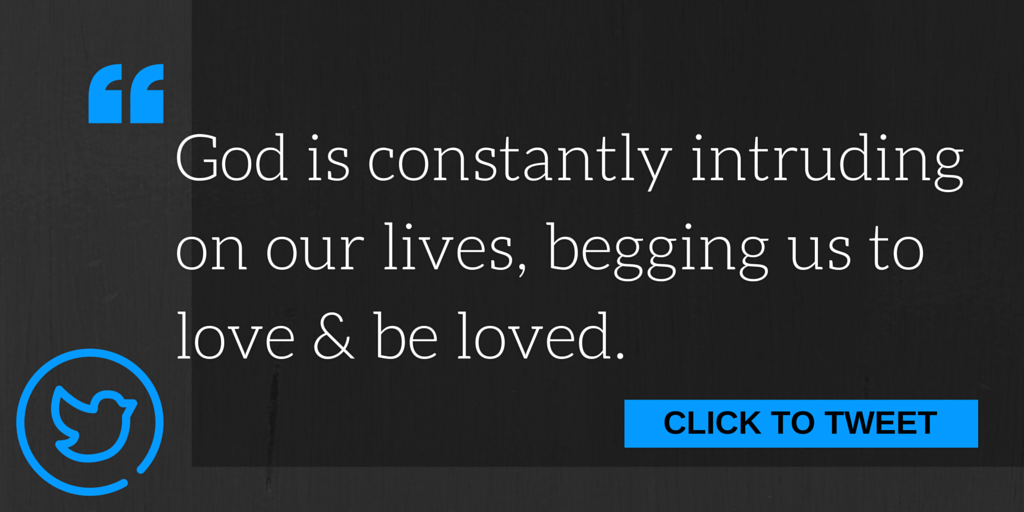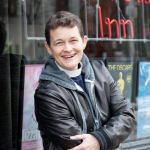“God is constantly intruding on our lives, begging us to love and be loved.”
The Reverend Elizabeth M. Edman, “Queer Virtue”
When I was nineteen, I left a four-year scholarship at a well-respected school to attend a small ministry internship program at our local church. I caught an incredible amount of criticism from my dad, who recognized my academic potential and the value of a college degree, but not my need to follow my heart. Against my father’s wishes, I took a risk and entered ministry school.
That was just one example of risk-taking in my life. I took risks in other ways, too:
- A solo cross-country trip on a Greyhound bus at the age of fourteen.
- A solo train ride to Washington, D.C. as a senior in high school.
- A kiss I stole in the doorway of the Baptist church as a high school freshman.
- Sharing my deepest, darkest secrets with a friend of mine. Things I haven’t even blogged about.
- Letting my wife leave with our kids for two weeks during a very rocky time in our marriage.
There was also the time I took a homeless guy out for a seafood dinner, during a business trip in Salt Lake City. Richard taught me more in those two hours than some people learn in years of sitting on a church pew.
Risk is some scary shit. But in each of these scenarios and countless others, learning to own my story and learning how to love better was totally worth the risk.
In the book “Queer Virtue,” author Liz Edman reminds us that simply choosing to identify as queer is extremely risky business. “…queer people take enormous risks simply by being ourselves in the world.”
I felt like I was risking a great deal a few months ago, when I came out in full support of the LGBTQ community. The truth is, in saying I am gay-affirming, I haven’t been disowned by my family or my church. I haven’t suffered violence or hatred. I only lost two friends. (Bye, Felicia.)
As much as I would like to joke about it by saying “good riddance” to those two friends, the truth is, when it happened, I grieved the loss. I was shocked, I was hurt, and I was angered. But imagine multiplying that by everyone in your community, or getting physically attacked. There is no comparison.
But for a queer person, this is about more than a little popularity contest. “By living into our identities,” Edman says, “we consciously enter a place of risk.” She goes on to say, “If Christians understand and respect nothing about queer experience, they should recognize this: proclaiming what you know to be true–especially in the face of hostility and ridicule–takes guts.”
But maybe you’re not queer. Maybe, like me, you chose to identify as a Democrat when your entire family has voted Republican for decades. Maybe you took a risk on a job opportunity and picked up and moved away against the wishes of loved ones. Maybe your risk was dating someone of another race. Whatever it was, you know it took a lot of courage.
Edman is right, loving better means taking risks. Each time we reveal our true self to our community and the world around us, we take a risk. Love and vulnerability and risk are intricately connected. Outing myself as a porn addict, talking about my childhood sexual abuse, and still trying to engage my faith after a major suicide attempt have been HUGE risks. Whatever the case may be, it takes guts to be different. In a world where differences make us afraid and fear lead to violence and hostility, to openly identify as queer may be one of the most brave acts a person can take.
Just look at this:
“In 2012 the National Coalition of Anti-Violence Programs (NCAVP) documented more than two thousand incidents of hate violence against LGBTQ people in the United States. Transgender women were twice as likely to experience discrimination, threats, and intimidation…”
A queer person–and any other person–it seems to me, has only two choices: risk living into your identity by owning your story, or be miserable as hell the rest of your life as you constantly war against your true self.
“When a queer person comes out–that is, tells the truth of her life–that person is living into hope. Whatever risk she takes, she has to believe that some part of her will survive whatever happens next, that some part of her is stronger than the hate and the intimidation and the violence.”
Edman goes on to provide a sharp comparison and contrast with the Biblical account of Abraham and Isaac and the relationship between the church and queer folks today. As Abraham, the man of faith, raises the knife over Isaac, a voice stops Abraham and proclaims Isaac’s innocence. In an incredible paradigm shift, Edman compares queer folks to Isaac, saying that he was actually the one risking everything, not Abraham. Edman says the church should be doing the same: “…trusting, risking, for the sake of love. This is exactly the moment when the church is supposed to hear the voice of God saying, ‘Put the knife down. This child is innocent.’ If this is a test, it is not a test of the child.”
I am a heterosexual Caucasian male. I have never had to fight for cultural or religious acceptance a day in my life. But there are plenty of people who wake up and go to bed fighting. Risking. Just to be the person God created them to be.
“The moment is upon us for the church to step boldly into the place of radical vulnerability–discerning and claiming our identity, rising, touching, facing down scandal, adopting and being adopted by one another–and in doing so, open pathways for people the world over who are clamoring to enter the sacred.”
Liz Edman’s book is not another worn-out argument in the “gay debate.” It is a breath of fresh air for Christians everywhere. Biggest takeaway: God continuously queers our dividing lines on behalf of love. If we profess that God is love, but our churches have no place for all God’s children–every vibrant color and flavor of the rainbow, whether straight, gay, transgender, addicted, healed, full of joy, or suicidal–we have missed the point of the Gospel. It is time for the church of Jesus to own our story and live our love.

All quotes from “Queer Virtue: What LGBTQ People Know About Life and Love and How It Can Revitalize Christianity”. Get your copy by clicking here.
Join the Grace is Messy Tribe
Sign up to get access to the member’s library, stocked with resources and printables for you.














